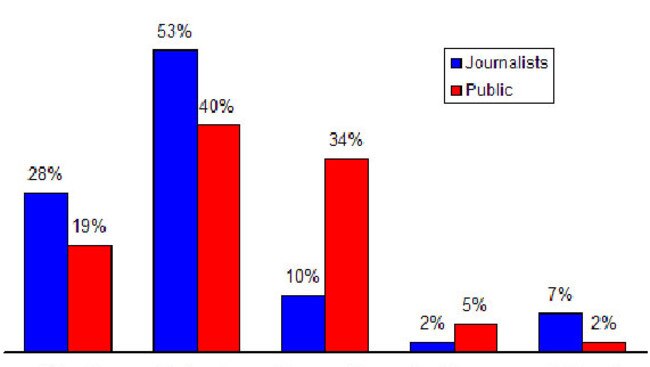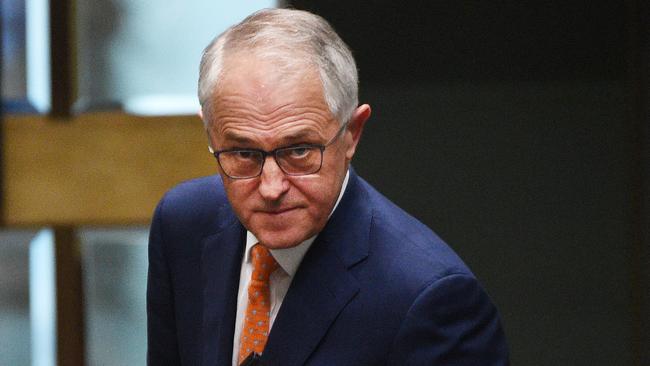How our politicians are slaves to the populism of polls
THE plebiscite is nothing but a great, big, massive opinion poll. And there’s a reason why pollies have become addicted to them.

SPRING has sprung and there is an awful lot of polling in the air.
There’s the seasonally usual level of opinion polling, of course. The fortnightly Newspoll,
which yesterday revealed that Prime Minister Malcolm Turnbull has sunk to new depths of unpopularity. Labor Leader Bill Shorten said he didn’t want to talk about that poll (because polls go up, polls go down and the only one that matters is the one on election day) but then proceeded to talk about it at length because, well, Malcolm Turnbull has sunk to new depths of unpopularity.
There’s also the Fairfax-Ipsos poll and the Roy Morgan poll. Oh, and Galaxy poll too.
There’s internal party polling and there’s third party polling.
But this year we’re in for an extra special treat. Along with the luscious tulips of Floriade, Canberra may just deliver us some extra polling. When parliament resumes next month, our politicians will be charged with deciding whether to hold a national plebiscite on gay marriage.
But don’t be fooled. Mr Turnbull and the Attorney General, Mr Brandis can dress this farce up in whatever new spring fashions they like but the plebiscite is nothing more than another opinion poll. It holds the parliament to nothing. It’s just better funded than most and has a bigger sample size.
There have even been polls on whether or not we should have this plebiscite/poll (with only 39 per cent supporting the poll). The remainder either don’t know what’s going on anymore (a position I have some sympathy for) or would prefer that parliament got on with it already, thank you very much.

Friends, it’s been threatening for a while now but I fear it’s finally happened: The opinion polls have taken over.
Australia has been in the opinion poll business since the 1940s and on the whole, they’ve proved a democratically useful tool. Polls have allowed our political leaders some insight into how the public thinks they’re tracking between elections. Taking the public’s temperature in this way has served as a gentle nudge — or sometimes a brutal wake up call — to many governments and leaders.
Twenty-five or so years ago though, the regularity of political opinion polling began to increase and so did the breadth of questions being asked. The Internet era has only turbocharged that process. Polls are now cheaper and easier to conduct than ever before. In fact, legislators could outsource the entirety of their decision-making powers to their social media fans if they wanted to.
Journalist, George Megalogenis and others have speculated that this may have contributed to the faster-than- normal changing of political leaders in Australia. At both the federal and state levels, leaders — first in opposition and now in government — are unceremoniously booted when they’re no longer riding high in the polls.
Forget the tail, it’s the polls that are wagging the dog.
There was a French revolutionary in the 1800s called Alexandre Ledru-Rollin, to whom the following is commonly attributed: “There go my people. I must find out where they are going so I can lead them”.
Now, Alexandre would have bloody loved this gay marriage plebiscite idea (and also the polling function on Twitter). A publicly funded, non-binding opinion poll would have told him exactly where his followers were going and all without the messiness of being involved in any actual revolutions. Sadly, his weak populism would probably fare well in today’s politics.
There is a reason that politicians who are slaves to opinion polling are synonymous with weakness, with populism, with pandering. It’s because we want our leaders to stand for something. We want them to believe in something. We want to be able to vest responsibility in them and then trust that they will make the right, rather than the easy or the popular decision.
Our politicians are there to deliberate and decide what is best for the country, not what will get them a bump in next week’s Newspoll. Democracy doesn’t require that a parliament enact the will of the people on every single issue, every single time; it requires the exercise of judgment on behalf of the people.
In part, this is because there are sometimes decisions too important and too complex to be dictated by ‘majority rules’. One such decision is that of minority rights. In this case the rights of gay and lesbian Australians to marry who they wish. Minority rights are something that history tells us has rarely been best protected by a vote of the majority.
And this time, even if it were successful, that vote wouldn’t even count.
Jamila Rizvi is a writer, presenter and news.com.au columnist. You can follow her on Facebook and Twitter.




